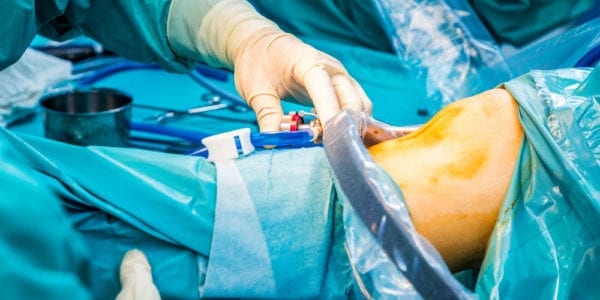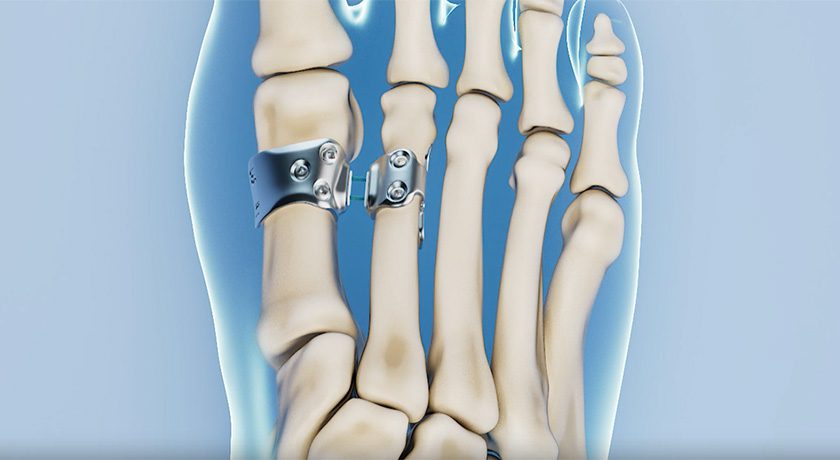

 Copy to clipboard
Copy to clipboard 
Orthopedic device company leaders and industry analysts have noted a faster than expected recovery of procedures in May 2020. However, they all acknowledged the role of patient sentiment in COVID-19 orthopedic procedure recovery. We collected some of the emerging data around patient confidence and found the following:
- Patients around the world are skipping medical care due to the COVID-19 pandemic
- Most patients will return to the procedure pipeline
- Many patients are willing to wait or find alternative treatments
- Patient interest in orthopedic procedures is accelerating
- Patients are suffering economically
A confounding variable is the impact of widespread civil unrest in the U.S. over the last several days. Nearly every recovery scenario laid out by device companies and analysts assumes no secondary spike in the rate of infection. The massive gatherings and protests in many U.S. cities could be a new vector for COVID-19 infections and dramatically alter the patient sentiments found here.
Patients Are Skipping Medical Care Due to COVID-19
According to a late-May survey conducted by the Kaiser Family Foundation, 48% of those polled said that they or a family member had deferred medical care because of the pandemic. Earlier in the month, British researchers projected the cancelation of 6.3 million orthopedic procedures worldwide in 2020.
Most Patients Will Return to the Pipeline
The Kaiser survey found that respondents who had skipped medical care expect to return for that care in 2020. Of respondents who deferred treatment, 68% indicated that they would return within three months. Surgeons expect to perform the majority of deferred procedures eventually, according to a survey of 623 U.S.-based physicians conducted by analysts with Wells Fargo Securities. Overall, the surgeons expected 83% of patients to return and 17% to cancel the procedure. The splits are slightly better within orthopedics, with 84% of patients expected to return. Joint replacement procedures showed the most “stickiness” with just 12% cancelations, while spinal fusions and trauma could see up to 20% cancelations.
Many Patients Are Willing to Wait or Find Alternative Treatments
Around 86% of patient respondents across all age groups who deferred medical care reported that their health is about the same since the pandemic started, according to the Kaiser survey. The orthopedic surgeons surveyed by Wells Fargo Securities analysts provided insight into procedure cancelation reasons as well. Almost 40% of patients who canceled procedures said their underlying condition had improved (14.3%), or they had found an alternative treatment (25.3%). These reasons were more prevalent among spinal fusions and trauma (49%) than in joint replacements (30%).
Patient Interest in Elective Procedures is Accelerating
Analysts with Needham have tracked Google search trends for various elective procedures, including the following orthopedic surgeries: knee replacement, hip replacement, spine and ACL repair. In April, searches for these procedures declined -47% versus the prior year. By May 24, however, those search trends had improved to -28% compared to the preceding year, a 19% improvement. Searches for knee replacement (25%) and ACL repair (26%) showed the highest rate of recovery.
Some Patients are Suffering Economically
Patients willing to undergo surgery may not have the financial means to do so. The U.S. Bureau of Labor Statistics reported an unemployment rate of 14.7% in April. According to the Kaiser survey, 31% of adult respondents have struggled with household expenses. More than a quarter of respondents have skipped meals, visited a food bank or relied on government food programs since February. Needham’s consumer survey found that 10% of respondents either have no health insurance or expected to lose it in 2020.
With these data points in mind, we maintain that the orthopedic procedure recovery will linger into 2021 and orthopedic companies’ businesses will remain disrupted during that time. While orthopedic procedure volume has increased since its lowest point in April, the situation remains fluid. In Q3, we expect procedure volume to be down -40% to -60% vs. the prior year, with procedures potentially approaching pre-COVID levels in the fourth quarter.
Orthopedic device company leaders and industry analysts have noted a faster than expected recovery of procedures in May 2020. However, they all acknowledged the role of patient sentiment in COVID-19 orthopedic procedure recovery. We collected some of the emerging data around patient confidence and found the following:
Patients around the...
Orthopedic device company leaders and industry analysts have noted a faster than expected recovery of procedures in May 2020. However, they all acknowledged the role of patient sentiment in COVID-19 orthopedic procedure recovery. We collected some of the emerging data around patient confidence and found the following:
- Patients around the world are skipping medical care due to the COVID-19 pandemic
- Most patients will return to the procedure pipeline
- Many patients are willing to wait or find alternative treatments
- Patient interest in orthopedic procedures is accelerating
- Patients are suffering economically
A confounding variable is the impact of widespread civil unrest in the U.S. over the last several days. Nearly every recovery scenario laid out by device companies and analysts assumes no secondary spike in the rate of infection. The massive gatherings and protests in many U.S. cities could be a new vector for COVID-19 infections and dramatically alter the patient sentiments found here.
Patients Are Skipping Medical Care Due to COVID-19
According to a late-May survey conducted by the Kaiser Family Foundation, 48% of those polled said that they or a family member had deferred medical care because of the pandemic. Earlier in the month, British researchers projected the cancelation of 6.3 million orthopedic procedures worldwide in 2020.
Most Patients Will Return to the Pipeline
The Kaiser survey found that respondents who had skipped medical care expect to return for that care in 2020. Of respondents who deferred treatment, 68% indicated that they would return within three months. Surgeons expect to perform the majority of deferred procedures eventually, according to a survey of 623 U.S.-based physicians conducted by analysts with Wells Fargo Securities. Overall, the surgeons expected 83% of patients to return and 17% to cancel the procedure. The splits are slightly better within orthopedics, with 84% of patients expected to return. Joint replacement procedures showed the most “stickiness” with just 12% cancelations, while spinal fusions and trauma could see up to 20% cancelations.
Many Patients Are Willing to Wait or Find Alternative Treatments
Around 86% of patient respondents across all age groups who deferred medical care reported that their health is about the same since the pandemic started, according to the Kaiser survey. The orthopedic surgeons surveyed by Wells Fargo Securities analysts provided insight into procedure cancelation reasons as well. Almost 40% of patients who canceled procedures said their underlying condition had improved (14.3%), or they had found an alternative treatment (25.3%). These reasons were more prevalent among spinal fusions and trauma (49%) than in joint replacements (30%).
Patient Interest in Elective Procedures is Accelerating
Analysts with Needham have tracked Google search trends for various elective procedures, including the following orthopedic surgeries: knee replacement, hip replacement, spine and ACL repair. In April, searches for these procedures declined -47% versus the prior year. By May 24, however, those search trends had improved to -28% compared to the preceding year, a 19% improvement. Searches for knee replacement (25%) and ACL repair (26%) showed the highest rate of recovery.
Some Patients are Suffering Economically
Patients willing to undergo surgery may not have the financial means to do so. The U.S. Bureau of Labor Statistics reported an unemployment rate of 14.7% in April. According to the Kaiser survey, 31% of adult respondents have struggled with household expenses. More than a quarter of respondents have skipped meals, visited a food bank or relied on government food programs since February. Needham’s consumer survey found that 10% of respondents either have no health insurance or expected to lose it in 2020.
With these data points in mind, we maintain that the orthopedic procedure recovery will linger into 2021 and orthopedic companies’ businesses will remain disrupted during that time. While orthopedic procedure volume has increased since its lowest point in April, the situation remains fluid. In Q3, we expect procedure volume to be down -40% to -60% vs. the prior year, with procedures potentially approaching pre-COVID levels in the fourth quarter.

You are out of free articles for this month
Subscribe as a Guest for $0 and unlock a total of 5 articles per month.
You are out of five articles for this month
Subscribe as an Executive Member for access to unlimited articles, THE ORTHOPAEDIC INDUSTRY ANNUAL REPORT and more.
ME
Mike Evers is a Senior Market Analyst and writer with over 15 years of experience in the medical industry, spanning cardiac rhythm management, ER coding and billing, and orthopedics. He joined ORTHOWORLD in 2018, where he provides market analysis and editorial coverage.







